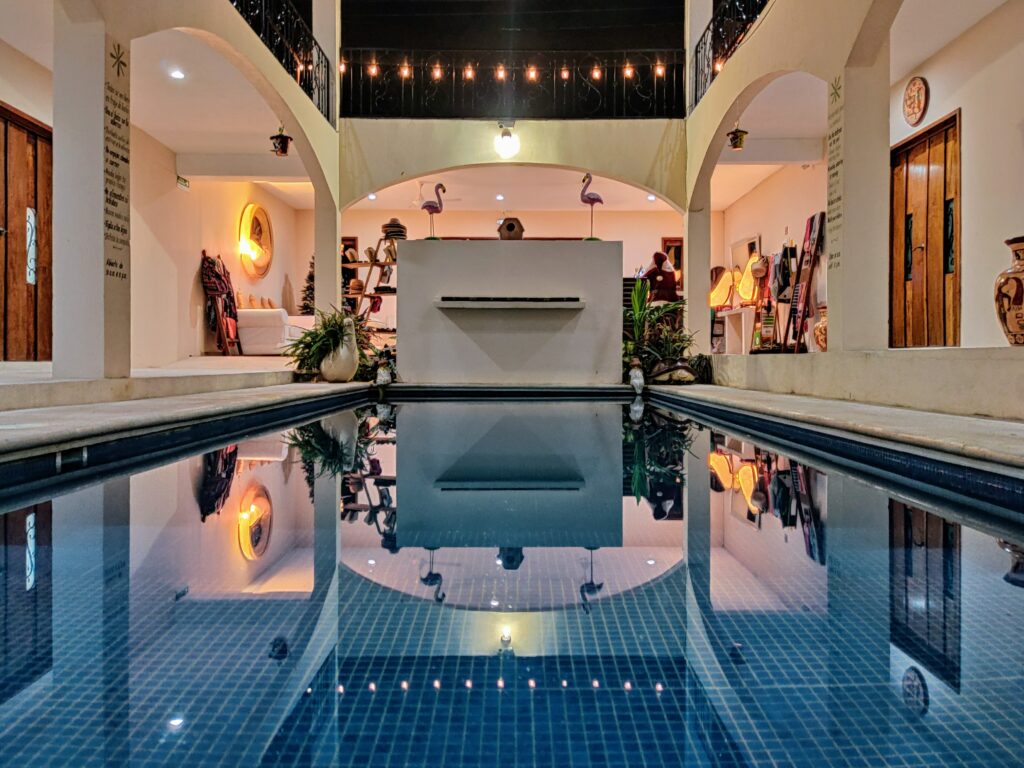
An indoor pool can be described as a structure that has a pool attached. While there are many indoor swimming pools that you can purchase, not all of them will withstand the elements. When choosing an indoor pool, it is important to take extra precautions. It is important to choose the best materials when building your indoor pool.
Three major considerations are required when you build an indoor pool. These are the cooling and heating system, the pool’s filter system, and proper ventilation. Proper ventilation prevents chlorine from reacting with other chemicals in water and causing it to be wasted. Your heating system ensures that the temperature of your swimming pool is maintained at a comfortable level. For heating and cooling, you can use solar panels or heaters. Solar heaters are especially useful if the climate is stable.
An important aspect of an indoor pool’s construction is its filtration system. This removes impurities such as dirt, leaves and bacteria. The most popular form of filtration is chlorine, but there are other options, like ultraviolet light and reverse osmosis. To remove as much chlorine from water as possible, it is important to ensure proper ventilation and air circulation. The effectiveness of air filtration systems in removing chlorine has been shown to be superior to chlorine.
You won’t have to spend too much on your indoor pool if you choose the right ventilation system. You should not attempt to install the ventilation system yourself, if you’re not experienced in this process. If you’re interested in installing an indoor swimming pool yourself, there are many sites that offer this service. You can also get in touch with professionals who can install the correct type of ventilation system.
When choosing a pool contractor, another important consideration is whether there are any water types available for indoor pools. Different types of pools need different water types. This is dependent on where you live. Dehumidifiers are required for areas with high humidity. This will prevent water from accumulating too many moisture which could lead to mold growth.
While it may be tempting to get an indoor pool for its ease-of-use and low maintenance, it does have some disadvantages. Indoor pools don’t have enough space for recreation. Although you may want to get in the pool daily, it’s unlikely you will be able if your home is humid. Outdoor pools are for many different activities. You can lay on them and exercise, swim or do other things. First, consider how much time you will spend indoors. Then, choose the right size and type of pool for you home.